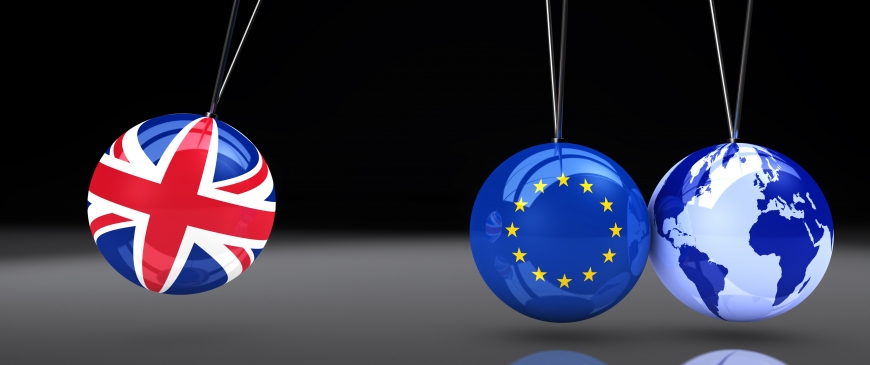
Don’t let UK-EU foreign policy co-operation be collateral damage of Brexit
Six months has passed since Brexit, but there has been no significant progress in the negotiations to define the future UK-EU relationship. And the clock is most definitely ticking. In a joint statement on Monday Boris Johnson and EU leaders made clear that the transition period for agreeing a deal would end on December 31, as per the UK’s wishes.
Against that backdrop, both sides agreed that “new momentum” was required, and the talks would intensify in July. But the tight deadline raises the risk that a deal will not be reached. Aside from being economically painful, failing to reach an agreement could deal serious collateral damage to foreign policy co-operation between the UK and the EU.
As international politics becomes ever more hostile, blessed are those who have partners in the world. Brexit does not change the fact that the UK and the EU continue to share many values and interests, and will need to find ways of working together. To be able to respond effectively to Chinese expansionism, Russian aggression, and conflict and instability in the Middle East, the UK will need to maintain a close foreign policy and security relationship with its partners in Europe. Likewise, the EU will profit from close co-operation with the UK, a military heavyweight with extensive global diplomatic ties.
In the political declaration of October 2019, the UK and EU agreed to “establish a broad, comprehensive and balanced security partnership”. But little progress has been made. In his latest press conference on June 5, the EU’s chief negotiator, Michel Barnier, complained that the Johnson government had been unwilling to discuss foreign policy co-operation. “I still don’t understand why,” he said.
The Johnson government has shown little sign that it is interested in an agreement on foreign policy co-operation with the EU. The UK emphasises that it wants to build closer ties to partners across the world, for example in the Commonwealth, instead of working primarily with other European countries — an approach supporters refer to as the Global Britain strategy. Insofar as it wants to continue co-operating with Europeans, the UK counts on working with them through Nato, and building on existing bilateral ties with France and Germany, with which it already works closely, for example in the E3 format on policy towards Iran.
But the UK is mistaken in doing so. While it may be tempted to seek closer co-operation with partners across the world, its closest and most powerful allies remain in Europe. I{n recent months the UK has repeatedly sided with the EU rather than the US: it has defended Nato against President Donald Trump’s assaults; condemned the unilateral withdrawal of US troops from Syria without consultation; sought to preserve the Iran nuclear deal together with France, Germany and others; and tried to oppose the US withdrawal from the Open Skies treaty.
Alignment with Washington appears to be a chimera, at least as long as Trump is in charge. His thinly veiled blackmailing attempts on Iran and on Huawei, predatory approach to trade negotiations, and repeated interference in UK politics show that the US is an unreliable partner. A Joe Biden victory in the presidential elections in November would not change the fundamental fact that the UK shares key interests with the EU, even if working with the US should become easier.
The UK is also mistaken to think that informal co-operation with European allies can supplant deep institutional ties. Informal co-operation is by definition ad hoc, volatile and subject to the broader mood in bilateral relations. It cannot replicate the intensity of dialogue in a highly institutionalised relationship. Meanwhile, Nato has issues of its own. The alliance is excellent at its core task of deterring Russia, but on other issues such as defence spending, Syria, Libya, Iran and arms control, it is divided. The lack of co-ordination within the alliance led Emmanuel Macron, the French president, to call it “brain dead”.
In an ideal world, the UK and the EU would agree to a highly institutionalised foreign policy partnership, with regular UK participation in meetings of EU foreign ministers, common joint statements, co-ordination of positions in multilateral bodies such as the UN and the World Trade Organisation, and extensive staff secondments between EU institutions and the UK civil service.
The UK and the EU may well in time agree to such a deep relationship. But this does not seem possible in the current political context. The Johnson government has shown little interest in such arrangements. And the EU has so far been unwilling seriously to contemplate giving the UK such a special status, out of concern that it would set a precedent for other non-members.
The two sides urgently need to think about how they can co-operate on foreign policy regardless of the outcome of the Brexit negotiations. Macron’s proposal for a European Security Council offers a promising way ahead. The arrangement still needs to be fleshed out, but a European Security Council would have the potential to provide an institutional forum that would gather the most important European countries and the UK, parallel to the EU but outside it. Regular dialogue and meetings would foster policy convergence on important international challenges, and come as close as possible to replicating the regular and institutionalised contacts of EU membership.
Brexit will hurt both the UK and the EU, but foreign policy co-operation need not be collateral damage. Whether the transition period will be extended or not, both sides should lay aside their differences on trade or the Irish protocol and agree on a close foreign policy partnership. If they fail to do so, Europe as a whole will be weakened, and the only ones to profit will be its adversaries.
Luigi Scazzieri is a research fellow and Leonard Schuette is a former Clara Marina O'Donnell fellow at the Centre for European Reform.
